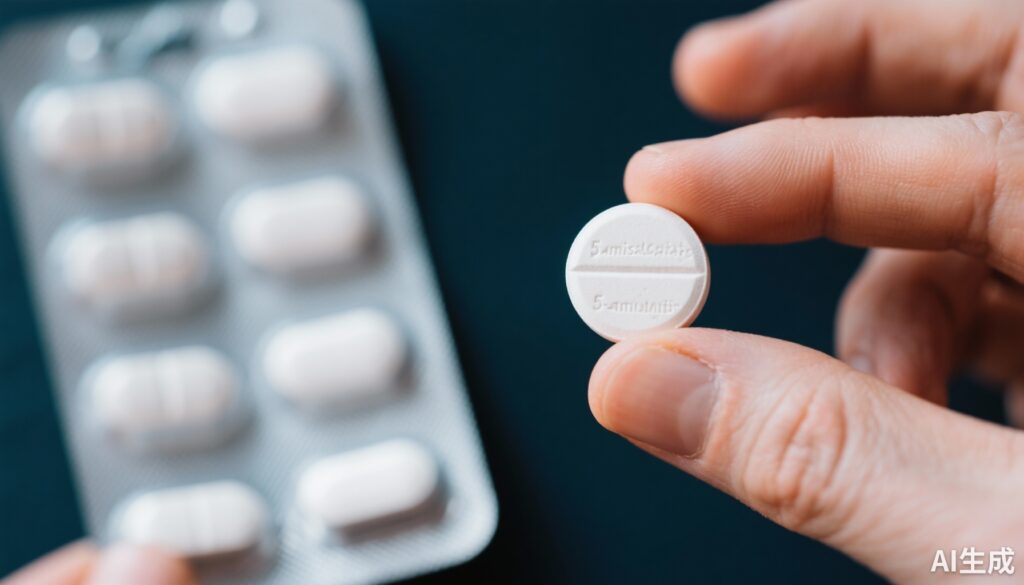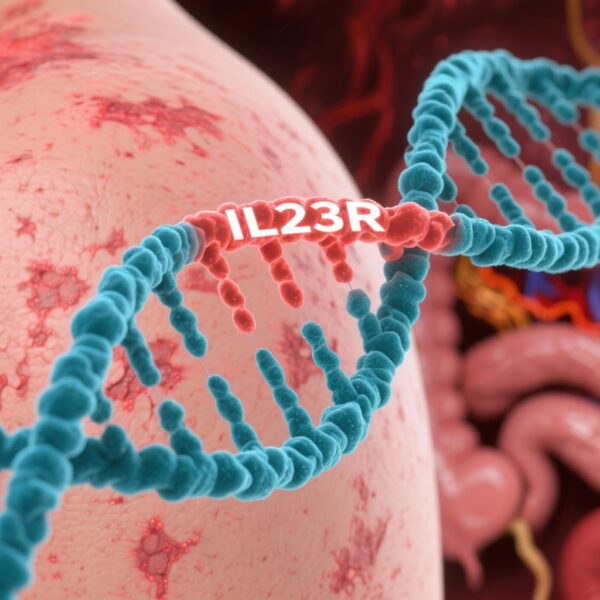Highlight
- The EASI trial tested whether a single 1600 mg 5-ASA tablet improves adherence in ulcerative colitis compared to three 800 mg tablets.
- Adherence rates were comparable between groups, with a trend toward fewer missed doses in the single-tablet group.
- Relapse rates and symptom control did not differ significantly between regimens during 12 months of use.
- The single 1600 mg tablet is a practical alternative that may simplify treatment without compromising efficacy or safety.
Study Background
Ulcerative colitis (UC) is a chronic inflammatory bowel disease characterized by relapsing and remitting mucosal inflammation of the colon. 5-Aminosalicylates (5-ASA) remain the cornerstone for inducing and maintaining remission in mild-to-moderate UC due to their anti-inflammatory properties. Despite efficacy, patient adherence to 5-ASA therapy is often suboptimal, with multiple daily dosing schedules and pill burden implicated as significant barriers. Poor adherence correlates strongly with increased risk of disease flare and need for escalation to corticosteroids or immunosuppressants. Strategies to improve adherence, such as simplifying dosing regimens, may therefore have meaningful clinical benefits. In this context, the EASI trial investigated whether a simplified regimen using a single 1600 mg 5-ASA tablet once daily could maintain remission similar to the conventional regimen of three 800 mg tablets once daily, potentially facilitating better compliance and patient convenience.
Study Design
The EASI trial was an open-label, randomized controlled phase IV study conducted in Denmark. A total of 178 adult patients with mild-to-moderate ulcerative colitis in stable remission (for at least 2 months) on 5-ASA therapy were enrolled and randomized in a 1:1 ratio. Inclusion criteria mandated no significant comorbidities impacting adherence. The two intervention arms were: (1) single 1600 mg Asacol tablet once daily, and (2) conventional regimen of three 800 mg Asacol tablets once daily (total 2400 mg). Treatment duration was 12 months with follow-up assessments at five intervals. Evaluations included pill dispensing, patient-reported symptom scores, biological samples (blood and stool), and adherence monitoring. The primary endpoint was adherence, defined by documented tablet intake and patient reporting; secondary endpoints included relapse rates and symptom recurrence.
Key Findings
Adherence rates were high and comparable between groups, with 82/89 patients adherent in the single tablet arm versus 78/89 in the three tablets arm, yielding no statistically significant difference (p = 0.32). Notably, patients in the single 1600 mg group reported fewer missed doses (24.5%) compared to the conventional regimen group (26.5%), suggesting a slight adherence advantage. Importantly, relapse frequency was similar in both groups; no difference was observed in the number or proportion of patients experiencing disease relapse. Statistical analyses did not identify adherence level or treatment group as significant predictors of relapse during the study. Safety profiles were not explicitly detailed but implied comparable tolerability.
These results suggest that reducing the pill burden by using a single tablet of slightly lower dose did not compromise clinical remission or adherence. Although the total daily dose was modestly lower (1600 mg vs. 2400 mg), no increase in relapse risk was reported during 12 months, supporting the feasibility of this regimen as an alternative treatment strategy.
Expert Commentary
The EASI trial addresses a practical challenge clinicians face in managing ulcerative colitis: optimizing long-term medication adherence. Prior literature underscores the link between adherence and relapse risk, yet simplification of regimens is not routinely applied. This study provides evidence that a lower-dose single-tablet 5-ASA strategy can maintain remission without reducing adherence or increasing flare risk. The open-label design illustrates real-world applicability, though it introduces potential bias in self-reported outcomes. Furthermore, the slightly lower total daily dose warrants longer follow-up to confirm sustained efficacy, especially in more severe or variable disease courses.
Contemporary guidelines emphasize patient-centered approaches, and simplifying dosing aligns with this tenet. However, clinicians should carefully weigh individual disease activity and pharmacokinetic considerations. Future research might explore pharmacodynamic correlates and health economic benefits, including cost-effectiveness analyses of reduced pill burden regimens.
Conclusion
The EASI trial demonstrates that a once-daily single 1600 mg 5-ASA tablet regimen is a viable alternative to the conventional three 800 mg tablet regimen for maintaining remission in mild-to-moderate ulcerative colitis. This regimen shows comparable adherence and relapse outcomes over 12 months. Simplifying treatment may enhance patient convenience and potentially adherence without compromising disease control, representing a meaningful option in routine clinical practice. Further studies should focus on long-term outcomes and patient-reported quality of life to reinforce these findings and inform guideline recommendations.
Reference
Nordestgaard RLM, Lo B, Bergstrøm R, Adzioski I, Skotte H, Hawwa IM, Holme SK, Tiftikci B, Majchrzak K, Vind I, Bendtsen F, Burisch J. Clinical Trial: Evaluating a Single 1600 mg Tablet Regimen of 5-Aminosalicylate for Ulcerative Colitis-The EASI Trial. Aliment Pharmacol Ther. 2025 Sep 16. doi: 10.1111/apt.70375. Epub ahead of print. PMID: 40955556.
Trial registration: Clinicaltrials.gov (ID NCT04133194). Approved by The Danish Medicine Agency and The National Committee on Health Research Ethics (EudraCT 2019-002070-31).



